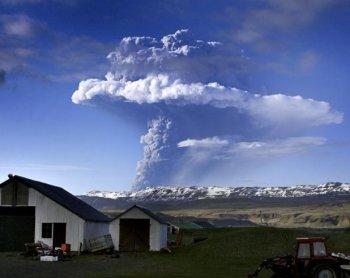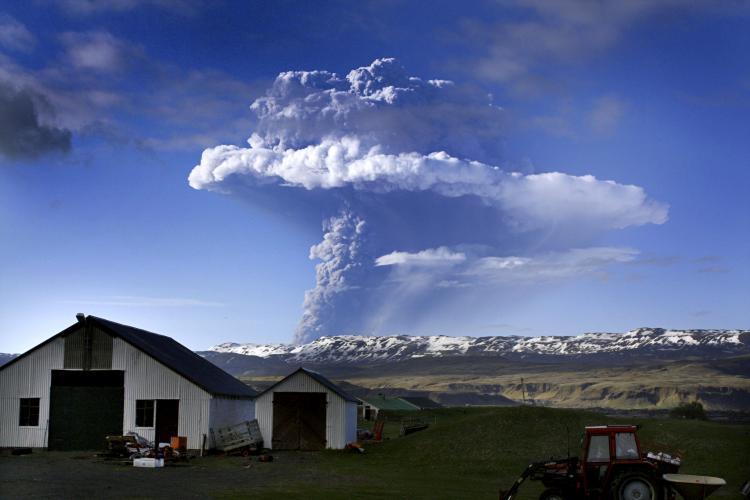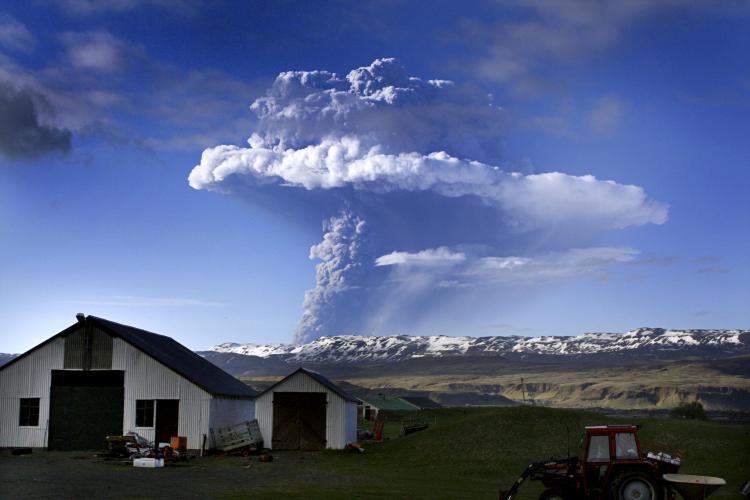Iceland’s Grimsvoetn volcano began its largest eruption in a century on Saturday afternoon, forcing the cancellation of domestic flights and the closure of all four international airports by late Sunday.
According to the Icelandic Met Office, the ash laden eruption plume had reached more than 12 miles high by Saturday night.
Grimsvoetn, about 120 miles east of Reykjavik, is the country’s most active volcano, and last erupted in 2004. Iceland’s Institute of Earth Sciences stated in a press release that this eruption plume was much higher than last time, and also higher than that of last year’s Eyjafjallajokull eruption.
However, by Sunday morning when scientists flew over the volcano, the cloud had diminished to around seven miles in altitude. It is currently lying over South Iceland with considerable ash fall expected, the Police Civil Defense Agency stated on its website.
The Eyjafjallajokull eruption in April 2010 led to a massive close down of international airspace over much of Europe.
Geophysicist Pall Einarsson at the University of Iceland told The Associated Press that this volcanic event is unlikely to be “anything on the scale that was produced last year.”
“That was an unusual volcano, an unusual ash size distribution and unusual weather pattern, which all conspired together to make life difficult in Europe,” he added.
No impact is expected on European airspace, according to the latest advisory on Eurocontrol’s website, and no change is predicted for the next 24 hours.
According to the Icelandic Met Office, the ash laden eruption plume had reached more than 12 miles high by Saturday night.
Grimsvoetn, about 120 miles east of Reykjavik, is the country’s most active volcano, and last erupted in 2004. Iceland’s Institute of Earth Sciences stated in a press release that this eruption plume was much higher than last time, and also higher than that of last year’s Eyjafjallajokull eruption.
However, by Sunday morning when scientists flew over the volcano, the cloud had diminished to around seven miles in altitude. It is currently lying over South Iceland with considerable ash fall expected, the Police Civil Defense Agency stated on its website.
The Eyjafjallajokull eruption in April 2010 led to a massive close down of international airspace over much of Europe.
Geophysicist Pall Einarsson at the University of Iceland told The Associated Press that this volcanic event is unlikely to be “anything on the scale that was produced last year.”
“That was an unusual volcano, an unusual ash size distribution and unusual weather pattern, which all conspired together to make life difficult in Europe,” he added.
No impact is expected on European airspace, according to the latest advisory on Eurocontrol’s website, and no change is predicted for the next 24 hours.






